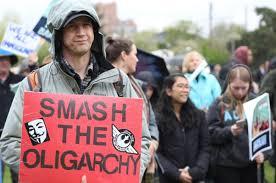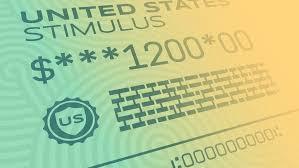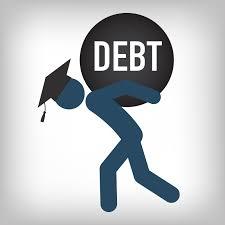Besides killing a third of a million Americans, sickening many millions, and disrupting our lives and metal health, the pandemic has been economically devastating. Something like 100,000 businesses have cut back or shut down, many permanently, hitting lower wage earners especially hard. On the other side of the tracks, anyone owning stocks has done very well. Thus further widening economic inequality.

I’m no left-wing social justice warrior, blaming economic disadvantage on the successful, considering their wealth morally “obscene.” But the question is what kind of society we want to live in. I want one that’s humane. With ameliorating human suffering a primary raison d’être.
Covid relief efforts have reflected such an ethos; sort of; up to a point. But, as seems endemic in human affairs, we don’t act with direct clarity, being waylaid by other interests and concerns.

Last spring’s initiative entailed $1200 checks. The latest, $600 checks (with efforts to increase them). But most Americans get them, instead of specifically targeting the neediest. Maybe figuring out who’s really needy would have been a fraught hassle. Or maybe too many would resent checks given to other people. Many Americans hate “welfare” but don’t put in that category any goodies they get from government. Anyhow, while the checks cost the nation hugely, the effect is diluted by spreading it so widely; the help to the neediest is piddling; and the aim of economic stimulus is also blunted, most recipients just holding onto the money rather than spending it.

The spring legislation also splashed out money supposedly to help businesses survive the pandemic. But this too was like an indiscriminate shotgun blast rather than laser-focused on where there was real need. The program wasn’t user-friendly, thus favoring big firms over the small ones that were actually hurting the most. Moreover, surprise, politically connected businesses somehow made off with bundles. Indeed, not just actual businesses. Joel Osteen’s cash-rich Texas megachurch got millions.
There’s also been an eviction moratorium, and New York State is enacting a more muscular version. Here again, instead of targeting the help where it’s most needed, it seems likely to benefit many better-off people. Supposedly, you’ll have to do paperwork showing hardship. The non-poor are better at working the system like that.
The eviction protection schemes point up a further problem. Keeping people from being thrown out on the streets is certainly a good intention, but there’s no free lunch, and legislators aren’t oriented at thinking about who pays. Here, we’re told that rent obligations are not being waived, that back rents will ultimately have to be paid. Oh, really? By tenants living from hand to mouth? In fact, is this eviction protection — or postponement? Kicking the can down the road (while making it heavier).

Of course nobody loves landlords. The word conjures fat aristocrats eating oysters in mansions while their peasant tenants starve. But actually, today we’re talking about businesses — supplying customers with a “good” in the truest sense, a roof over their heads — and rather than being a lucrative game, it’s actually a very tough business. And many are indeed the kinds of small businesses, hurt by the pandemic (often unable to collect rent), that other programs are supposedly aimed at helping — even while eviction moratoria screw them.
If low income tenants need help, how about government just manning up and paying their rent, instead of shoving the burden off on landlords?

Then there’s the student debt monster awaiting the Biden administration. With similar issues arising. How to help those truly in need, without most of the benefit going to people who are actually better off. College grads do tend to economically outpace the degreeless. Their student debt may seem onerous, but they made a calculated investment that should pay off handsomely over their working lives. On the other hand you have poorer students — poor in both senses — who gained little from their studies and now owe crippling debts. And where will the cost of debt relief really fall? Meantime, the whole student loan program was a big factor making colleges so expensive — knowing there was money there, they boosted tuition to soak it up. Forgiving loans will feed that syndrome.

The bottom line on all these issues is that we should just make a societal decision to help people truly in need (including for health care), as a basic principle. Not because that fits with some political ideology, but simply because it is humane and reflects our best selves. And we, as a society, should simply pay for it. Which we are amply rich enough to do. The costs of raising everyone to what we should all agree is a minimally decent living standard are actually dwarfed by benefits handed out to the better off without our batting an eyelash.
